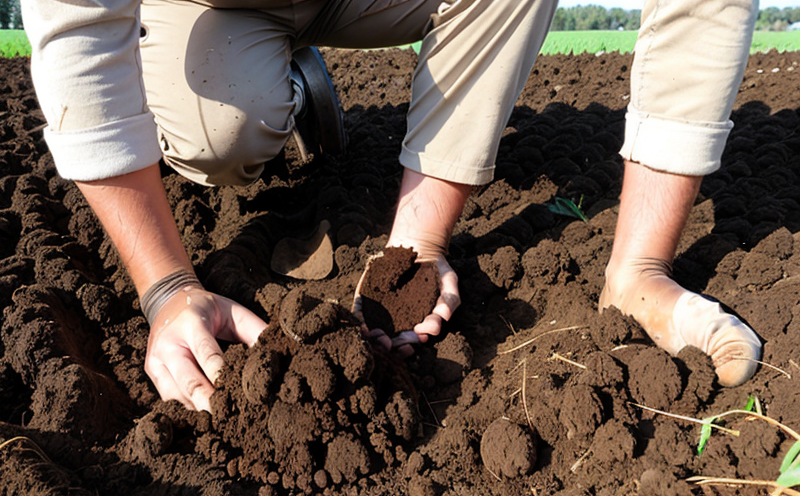Soil Organic Nitrogen Content Testing
The measurement of soil organic nitrogen content is crucial in agriculture and forestry testing as it provides insights into the soil's fertility, structure, and health. Soil organic nitrogen forms a significant part of the soil's total nitrogen pool, contributing to plant growth through the availability of essential nutrients.
Organic nitrogen in soils exists primarily in the form of proteins, amino acids, nucleoproteins, humus compounds, and other nitrogen-containing compounds that are not directly available for plants. This content is a key indicator of soil quality and can influence crop yield and sustainability practices. The testing method aims to determine the quantity of organic nitrogen present, which helps in assessing the overall fertility of the soil.
The process involves collecting representative soil samples from various locations within an agricultural or forestry plot. These samples are then sent for analysis at a specialized laboratory where they undergo rigorous testing using advanced analytical techniques such as combustion analysis and titrimetric methods.
Combustion analysis is one of the most common methods used to determine soil organic nitrogen content. This involves heating the sample under controlled conditions, which breaks down the complex organic compounds into simpler forms, including carbon dioxide and water. The loss in weight during this process directly correlates with the amount of organic matter present.
Titrimetric methods use standardized solutions to react quantitatively with the nitrogen content extracted from soil samples. This approach is particularly useful for precise determination of small amounts of nitrogen.
- Environmental and Sustainability Contributions:
- Understanding soil organic nitrogen helps in optimizing fertilization practices, reducing the need for synthetic nitrogen inputs which are energy-intensive to produce.
- Improved soil health leads to better water retention and reduced runoff, contributing to more sustainable agricultural practices.
Accurate measurement of soil organic nitrogen is essential for maintaining ecological balance. By ensuring that the soil has an optimal level of nutrients, farmers can enhance crop productivity while minimizing environmental impact.
Eurolab Advantages
Eurolab prides itself on offering comprehensive and accurate soil testing services. Our expertise in this field is backed by state-of-the-art facilities, highly trained technicians, and adherence to international standards such as ISO 17025. This ensures that our results are reliable and can be trusted for decision-making processes.
- Use Cases and Application Examples:
- In precision agriculture, soil organic nitrogen testing helps in tailoring fertilization strategies to meet specific crop needs without over-fertilizing or underutilizing resources.
- In forestry management, this test assists in planning reforestation projects by providing data on the existing nutrient content of the land, which is crucial for successful tree planting and growth.
Our commitment to quality and innovation has made us a leader in agricultural and forestry testing services. Eurolab’s rigorous standards and cutting-edge technology ensure that our clients receive accurate and actionable insights into their soil's organic nitrogen content.





